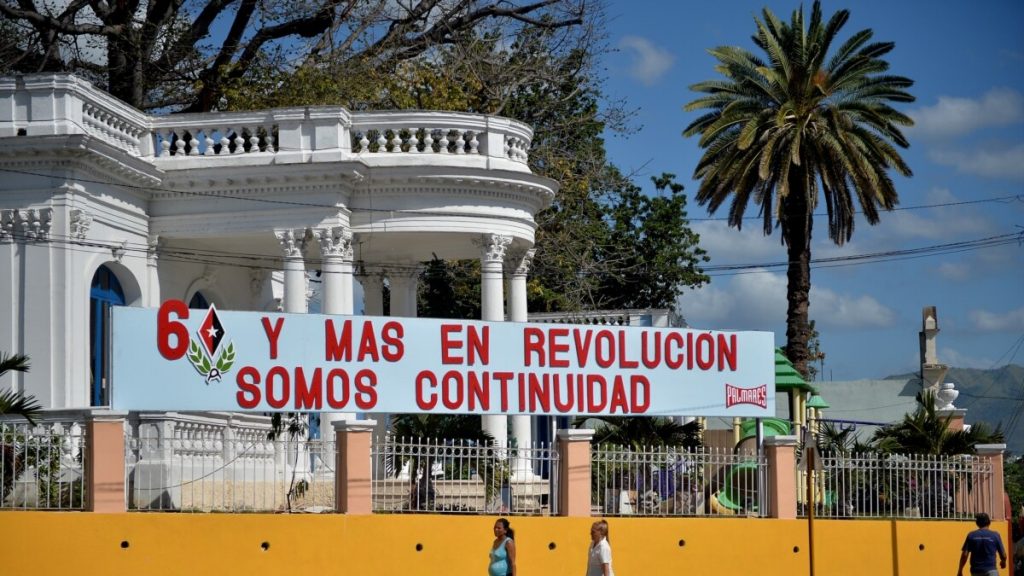By Satyaki Chakraborty
Sixty years have passed since the then United States President John Kennedy initiated economic blockade against Cuba headed by Fidel Castro which is still continuing now. On February 3, 1962, the blockade was first initiated in the form of embargo on all trade between Cuba and the U.S. and that was used by the US administration for the last six decades to weaken and even throw out the first government in its backyard headed by the Communist Party.
Since that time, Washington’s policy of siege and economic suppression has become the core of a strategy designed to curtail the legitimate right of the Cuban people to defend their sovereignty and realize a program of development free of imperialist domination.
Washington’s main argument then, for the application of the measure, was Cuba’s relations with the socialist countries, which allegedly offended against “the principles of the inter-American system” and posed a threat to the security of America and the Western Hemisphere. The pretexts have varied with the passage of time, while the intentions have remained unchanged.
The clearest definition of the true aims of U.S. policy towards Cuba had already emerged, in the form of an internal memorandum by Lester D. Mallory, Deputy Assistant Secretary at the State Department, dated 6th April 1960: “provoking disappointment and discouragement through economic dissatisfaction and hardships…weaken the economic life…denying Cuba funds and supplies to reduce nominal and real salaries with the objective of provoking hunger, desperation and the overthrow of the government.”
The blockade has escalated to become the most complex, prolonged, and inhuman act of economic warfare ever committed against any nation. Its effects have constrained the scope for economic growth, being designed to impede trading relations with third countries, cause maximum possible obstruction of banking and other financial operations, deter foreign investment, and cut off all sources of revenue.
The Cuban Government says that it is an essentially extraterritorial policy, in breach of international law, which uses pressure, blackmail, and penalties in seeking to isolate Cuba and penalize those who establish any trading, commercial, or financial links with the country. It is a practical expression in the 21st century of the Monroe Doctrine, which takes a proprietorial view of Latin America and the Caribbean as either America’s “back yard” or “front yard.”
Leading international lawyers have pointed out that the blockade constitutes a massive, flagrant, and systematic violation of the human rights of all Cubans. It amounts to an act of genocide within the meaning of the 1948 Convention on the Prevention and Punishment of the Crime of Genocide.
In seeking to justify the policy, Washington resorts to lies, while attempting to obscure its criminal nature by financing campaigns to spread the notion that the blockade does no real harm to the Cuban economy, that its effects are not a significant obstacle to our development and economic stability. This falsehood is disseminated through the powerful mass media subservient to imperialism and through the digital networks designed to influence public opinion, including that of certain compatriots.
The losses accumulated during these six decades amount to over $144,413,400,000 USD at current prices. Since 2019,the coercive economic measures have reached unprecedented degree of severity. During the period of pandemic, fuel supplies to Cuba are being blocked weakening all efforts of the Cuban government to improve the growth in industry to fight the covid virus.
Human rights lawyers point out that In the context of the efforts addressing the COVID-19 pandemic, the intensification of the blockade assumes an unheard-of level of cruelty, impeding donations in a spirit of solidarity, attempting to hinder the development of Cuba’s vaccines, and disrupting access to basic medicines and supplies. During the pandemic, and throughout the last 60 years, the blockade has had an incalculable human cost, suffered directly by several generations.
Despite the blockade, the strengths of the Cuban socialist system and the unity of the Cuban people have enabled the country to avoid the economic collapse it envisions and to reach an outstanding level of human development (according to the U.N.-recognized Human Development Indexes), while making unquestionable gains in terms of social justice and bringing about a gradual transformation in economic and production structure aimed at sustainable growth. One wonders how many small, underdeveloped economies could have survived an onslaught on such a scale.
This policy of economic siege is met with practically unanimous and universal rejection. In addition to the overwhelming support accorded to the resolution adopted by the U.N. General Assembly every year, there are constant calls and denunciations by individuals, organizations, and institutions worldwide, including within the United States.
Since 1959, there have been 13 occupants of the White House. With certain variations, in every case, there has been a constant intention to cause the economic collapse and unsustainability of Cuba’s revolutionary plan, through strict application of the blockade. It seems that 60 years has not been enough time to realize that it has not achieved, and will never achieve, the aims of its promoters.
The six decade long blockade has made Cuban people more self sufficient and innovative. They have some distress, some problems but the government has shown how its public health care has emerged as a model for the pandemic hit nations. At a time when the health care system in United States is on the brink, Cuba has not only kept the infections to the minimum but has also supplied medical equipment, personnel and its indigenously made vaccine to a number of developing countries. Cuba has shown vaccine internationalism in its true form. (IPA Service)

 Disinvestment Of BEML Faces Resistance From Employees At All Levels
Disinvestment Of BEML Faces Resistance From Employees At All Levels 